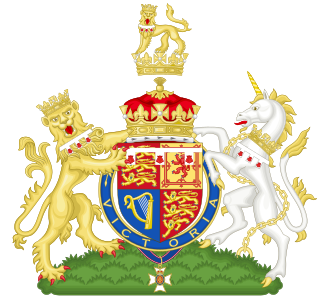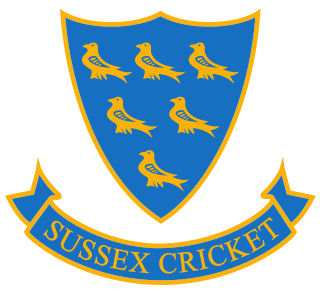Sussex is a historic county in South East England, taking its name from the Kingdom of Sussex in early Anglo-Saxon England. It is now divided into the ceremonial counties of East Sussex and West Sussex.
Sussex is a historic county in South East England, taking its name from the Kingdom of Sussex in early Anglo-Saxon England. It is now divided into the ceremonial counties of East Sussex and West Sussex.
Gloucester is a city and the county town of Gloucestershire, United Kingdom. It may also refer to:
Brunswick is the historical English name for the German city of Braunschweig.
Bloomfield may refer to:
Mount Pleasant may refer to:

West Sussex is a county in South East England on the English Channel coast. The ceremonial county comprises the shire districts of Adur, Arun, Chichester, Horsham, and Mid Sussex, and the boroughs of Crawley and Worthing. Covering an area of 1,991 square kilometres, West Sussex borders Hampshire to the west, Surrey to the north, and East Sussex to the east. The county town and only city in West Sussex is Chichester, located in the south-west of the county. This was legally formalised with the establishment of West Sussex Council in 1888 but within the ceremonial Sussex. After the reorganisation of local government in 1974, the ceremonial function of the historic county of Sussex was divided into two separate counties, West Sussex and East Sussex. The existing East and West Sussex councils took control respectively, with Mid Sussex and parts of Crawley being transferred to the West Sussex administration from East Sussex. In the 2011 census, West Sussex recorded a population of 806,900.
Norton may refer to:

Duke of York is a title of nobility in the Peerage of the United Kingdom. Since the 15th century, it has, when granted, usually been given to the second son of English monarchs. The equivalent title in the Scottish peerage was Duke of Albany. However, King George II and Queen Victoria granted the second sons of their eldest sons the titles Duke of York and Albany and Duke of York respectively.

The House of Hanover, whose members are known as Hanoverians, is a European royal house of German origin that ruled Hanover, Great Britain, and Ireland at various times during the 17th to 20th centuries. The house originated in 1635 as a cadet branch of the House of Brunswick-Lüneburg, growing in prestige until Hanover became an Electorate in 1692. George I became the first Hanoverian monarch of Great Britain and Ireland in 1714. At Queen Victoria's death in 1901, the throne of the United Kingdom passed to her eldest son Edward VII, a member of the House of Saxe-Coburg and Gotha. The last reigning members of the House lost the Duchy of Brunswick in 1918 when Germany became a republic.
Brighton is a town in East Sussex and constituent part of the city of Brighton and Hove.

Duke of Sussex is a substantive title, one of several royal dukedoms, that has been created twice in the Peerage of the United Kingdom. It is a hereditary title of a specific rank of nobility in the British royal family. It takes its name from the historic county of Sussex in England.
Leicester is a city in England.

Earl of Stockton is a title in the peerage of the United Kingdom. It was created on 24 February 1984 for Harold Macmillan, the former Conservative prime minister, less than three years before his death in 1986. At the same time a courtesy title was conferred for the earl's heir apparent: Viscount Macmillan of Ovenden, of Chelwood Gate in the County of East Sussex and of Stockton-on-Tees in the County of Cleveland.

Baron Ashcombe, of Dorking in the County of Surrey and of Bodiam Castle in the County of Sussex, is a title in the Peerage of the United Kingdom. It was created in 1892 for the Conservative politician George Cubitt of Denbies House, Dorking, Surrey, who was continuously elected at elections over a 32-year period. He was the son of the architect Thomas Cubitt. Lord Ashcombe was succeeded by his son, the second Baron. He was a Conservative Member of Parliament and also served as Lord Lieutenant of Surrey. As of 2013, the title is held by his kinsman, the fifth Baron, who succeeded his first cousin, once removed in 2013.
Northumberland is a ceremonial county and unitary authority area in North East England.

Sussex County Cricket Club is the oldest of eighteen first-class county clubs within the domestic cricket structure of England and Wales. It represents the historic county of Sussex. Its limited overs team is called the Sussex Sharks. The club was founded in 1839 as a successor to the various Sussex county cricket teams, including the old Brighton Cricket Club, which had been representative of the county of Sussex as a whole since the 1720s. The club has always held first-class status. Sussex have competed in the County Championship since the official start of the competition in 1890 and have played in every top-level domestic cricket competition in England.

The County Cricket Ground, known for sponsorship reasons as The1st Central County Ground, is a cricket venue in Hove, East Sussex, England. The County Ground is the home of Sussex County Cricket Club, where most Sussex home matches since 1872 have been played, although many other grounds in Sussex have been used. Sussex CCC continue to play some of their games away from The County Ground, at either Arundel Castle and Horsham. It is one of the few county grounds to have deckchairs for spectators, in the Sussex CCC colours of blue and white, and was the first cricket ground to install permanent floodlights, for day/night cricket matches and the second ground to host a day/night match in England, in 1997.
The Prince of Wales Ground, also known as Prince's Ground, in Brighton, Sussex was the venue for top-class cricket matches in the closing years of the 18th century.
Victoria most commonly refers to:
Duke, in the United Kingdom, is the highest-ranking hereditary title in all five peerages of the British Isles. A duke thus outranks all other holders of titles of nobility.

Canadian peers and baronets exist in both the peerage of France recognized by the Monarch of Canada and the peerage of the United Kingdom.